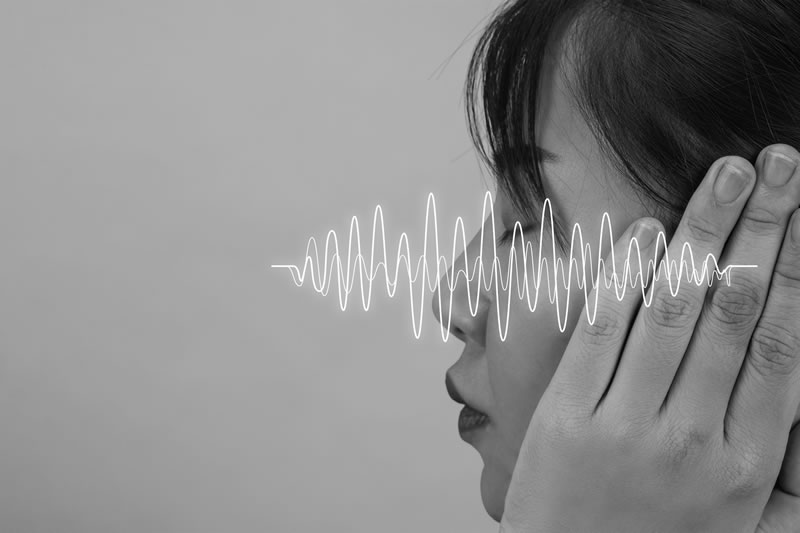Between honking cars, speeding trains, and jarring construction machinery banging day and night, the urban soundscape of New York City is rarely well-suited to creating a relaxing oasis at home.
At best, street sounds and other outside noises may seem like a nuisance—a fact of life in a big city. At worst, these noises can be harmful to our health, and may even take years off our lives.
According to a recent article published by the New York Times, noise pollution is a “largely unrecognized health threat that is increasing the risk of hypertension, stroke and heart attacks worldwide, including for more than 100 million Americans”. Even if you’ve lived in NYC your whole life and feel like you’ve adapted to the constant cacophony, studies reveal the opposite is actually true: “Prior noise exposure primes the body to overreact, amplifying the negative effects.”
Whether it’s merely a nuisance or hazardous to your health, there’s no denying the downsides of excessive city noise. In this post, we’ll take a look at the health effects of noise pollution, how harmful street noise enters your home, and what you can do about it, including how to block street noise from windows.
The Health Effects of Noise Pollution
When noise enters your ear, it triggers a cascade of reactions in your brain. If your brain is chronically over-activated by noise, these reactions can begin to produce harmful health effects, including:
- Your endocrine system may release too much cortisol, adrenaline and other chemicals. Excess noise in schools in particular is associated with heightened stress hormones, as well as lower reading scores and even hyperactivity.
- The sympathetic nervous system may become hyperactivated, leading to increased heart rate, higher blood pressure, and the production of inflammatory cells.
- Nighttime noise can disrupt sleep and trigger a stress response, even if you don’t recall any disruption.
Over time, these heightened reactions can lead to inflammation, hypertension and plaque buildup in arteries, which can increase the risk of heart disease, heart attack, and stroke.
So, how loud is too loud?
According to the World Health Organization, average road traffic noise above 53 dB or average aircraft noise above about 45 dB are associated with adverse health effects. When it comes to nighttime noise, the W.H.O. recommends even less—40 dB on average for outdoor nighttime noise, and less than 30 dB for indoor noise.
The true limit may be even lower—a 2022 study by Environment International followed more than four million people for more than a decade, and found that the risk of dying from cardiovascular disease increased by 2.9% for every 10 dB increase in exposure to road traffic noise above 35 dB. The increase in risk of dying from a heart attack was even more pronounced—it increased by 4.3% for every 10 dB increase over 35 dB in road traffic noise.
Even if your neighborhood seems quiet, over 100 million Americans are exposed to dangerous noise levels. According to a 2020 analysis by the Department of Transportation, nearly a third of the U.S. population lives in areas exposed to noise levels of at least 45 dB, exceeding the W.H.O’s recommendations for noise exposure.
How Harmful Street Noise Enters Your Home
The most common entry points for noise are windows, doors, air conditioners, and PTAC/HVAC units. Any cracks or gaps in the seals around these points allow air—and therefore sound—to enter your home.
Windows can be especially bad for this, particularly if they are single pane, or you are in an older building where the seals have worn with age. Noise transfers easily through glass, even in a properly sealed window. Some standard windows, such as double pane windows, offer greater soundproofing benefits than others, but no standard windows are effective enough to be considered true “soundproofing” windows.
Read our Complete Guide to Soundproofing Your Home to learn more about noise entry points and how to fix them.
How To Block Street Noise from Windows
The most effective way to block street noise coming in through windows is to replace them or supplement them with interior soundproofing windows. Double-glass panes can reduce some noise, but custom-fitted soundproofing interior windows will offer the greatest reduction in noise, blocking up to 95% of exterior noise.
Cityproof soundproof interior Citiwindows® work in conjunction with existing exterior windows to create a buffer zone of air space that seals out up to 95% of outdoor noise, as well as drafts and dirt. They do this by:
- Adding mass: Citiwindows feature laminated glass with an inner PVB (polyvinyl butryal) layer that adds mass while also providing additional sound damping qualities.
- Creating a buffer zone: By adding a second layer of laminated glass or insulated laminated glass, Citiwindow interior soundproof windows create an air space that acts as a buffer zone between the new window insert and the existing exterior window to help trap sounds.
- Sealing gaps: Each Citiwindow is custom-fitted and manufactured to ensure the tightest possible seal, blocking up to 95% of noise.
Learn more about how Cityproof soundproofing windows work to block street noise from windows.
Conclusion
Noise pollution can cause a number of adverse health effects, including increased risk of hypertension, stroke, and heart attack. Reducing noise pollution inside your home by soundproofing common entry points like windows, air conditioners, and PTAC/HVAC units can help protect you from the negative effects of outdoor noise.
Custom-fitted soundproof windows and air conditioner enclosures are the most effective option for stopping exterior noise. By working in conjunction with the existing exterior window, custom-made interior soundproof windows create a tightly sealed airspace that stops up to 95% of exterior noise from entering your space.

